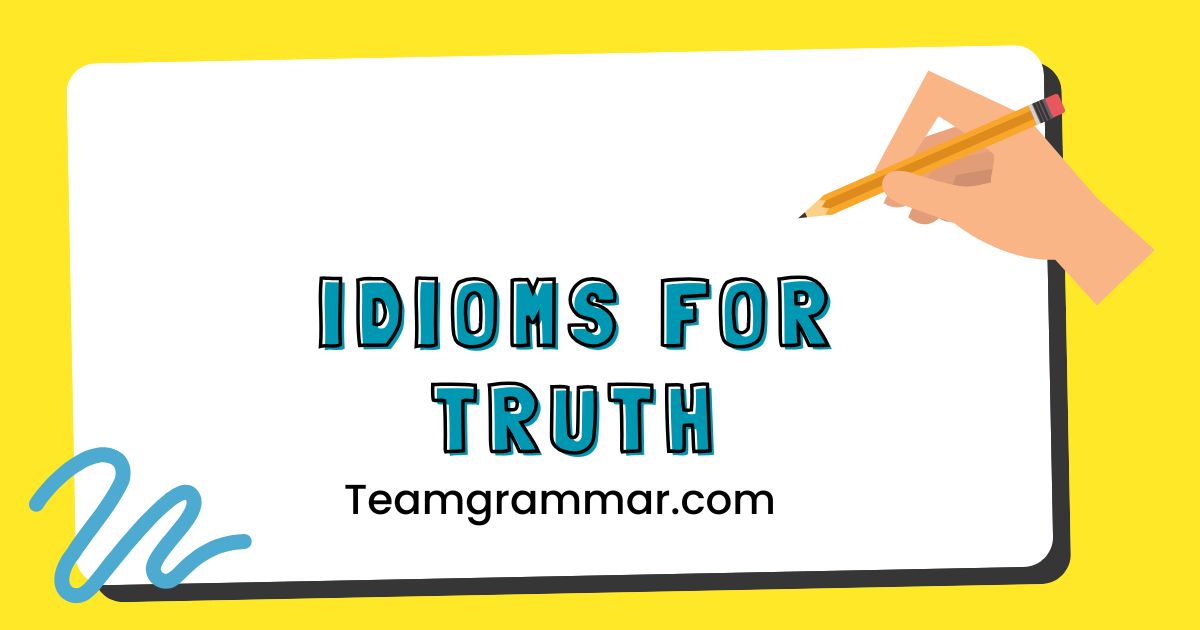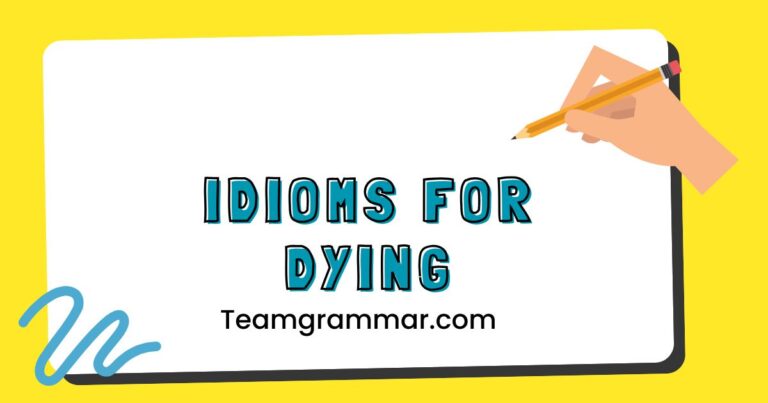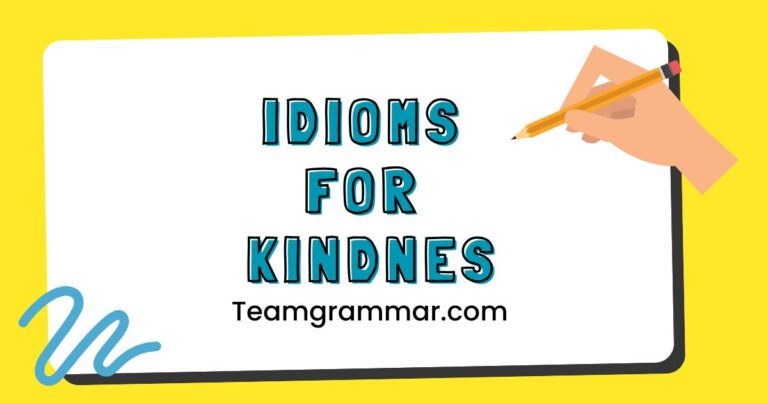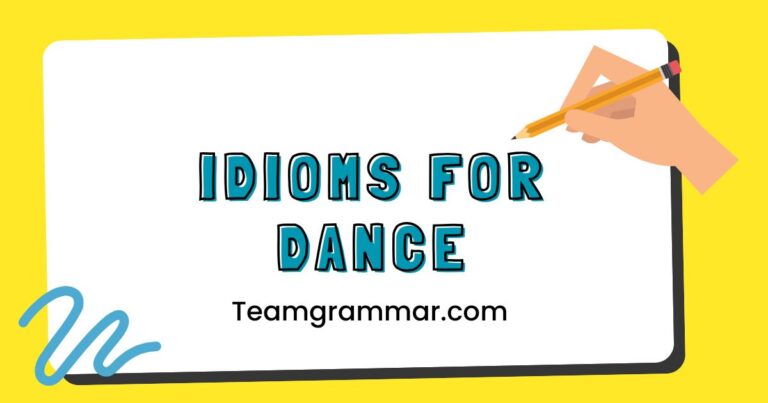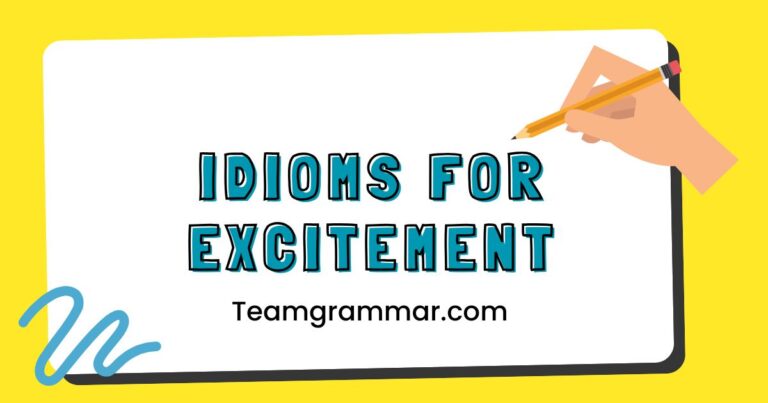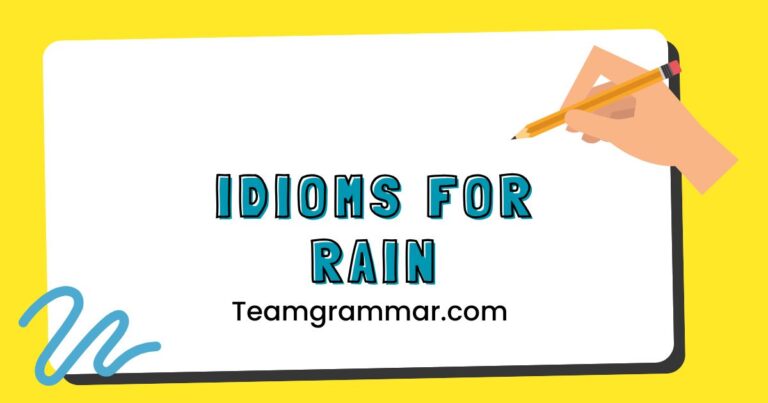49 Idioms for Truth: Mastering Expressions of Honesty
Understanding idioms related to “truth” is crucial for mastering English fluency and comprehension. These expressions add color and depth to communication, allowing speakers to convey nuanced meanings beyond literal interpretations.
This article explores a wide range of idioms related to truth, honesty, and deception, providing definitions, examples, and practical exercises. Students of English at all levels, from intermediate to advanced, will benefit from understanding these idioms, enhancing both their spoken and written communication skills.
Table of Contents
- Introduction
- Definition of Idioms for Truth
- Structural Breakdown of Idioms
- Types and Categories of Truth Idioms
- Examples of Idioms for Truth
- Usage Rules for Truth Idioms
- Common Mistakes with Truth Idioms
- Practice Exercises
- Advanced Topics in Truth Idioms
- Frequently Asked Questions
- Conclusion
Definition of Idioms for Truth
An idiom is a phrase or expression whose meaning cannot be understood from the ordinary meanings of the words within it. Idioms related to “truth” are expressions that convey concepts of honesty, deception, accuracy, or the process of uncovering facts.
These idioms add color and nuance to language, offering a more vivid and often more impactful way to communicate about truth-related topics. They are often culturally specific and can be challenging for non-native speakers to understand without explicit explanation.
Idioms function as a type of figurative language. Rather than conveying a literal meaning, they rely on implied or symbolic meanings.
Understanding idioms requires familiarity with the cultural context in which they are used. Idioms related to “truth” can be classified based on the specific aspect of truth they address, such as honesty, deception, or revelation.
The context in which an idiom is used is crucial to its correct interpretation. For example, “to call a spade a spade” means to speak frankly and directly, even if it’s unpleasant.
Structural Breakdown of Idioms
Idioms, by nature, do not conform to standard grammatical rules. Their structure is often fixed, meaning that the words within the idiom cannot be changed or reordered without altering or destroying the idiom’s meaning.
The structure of idioms related to truth often involves metaphorical or symbolic language. Verbs like “to lie,” “to tell,” “to reveal,” and “to uncover” are frequently used.
Nouns associated with truth, such as “honesty,” “fact,” “lie,” and “deceit,” are also common. Adjectives like “true,” “false,” “straight,” and “crooked” can also play a role.
The grammatical structure of an idiom can vary. Some idioms are phrases, while others are complete sentences.
Many idioms contain prepositions that contribute to the overall meaning. For example, “to get to the bottom of” uses the preposition “to” and “of” to convey the idea of thoroughly investigating something.
The tense of the verbs within an idiom can be adjusted to fit the context of the sentence, but the core structure of the idiom remains unchanged. The use of articles (a, an, the) within an idiom is also fixed and cannot be altered.
Types and Categories of Truth Idioms
Idioms related to truth can be categorized based on the specific aspect of truth they address. These categories include idioms of honesty and integrity, idioms of deception and lying, idioms of revealing the truth, and idioms of veracity and accuracy.
Idioms of Honesty and Integrity
These idioms describe situations or behaviors characterized by truthfulness, sincerity, and moral uprightness. They often highlight the importance of being honest and trustworthy.
Such idioms are frequently used to praise someone’s character or to encourage ethical behavior. Consider the phrase “as good as one’s word,” which means someone who keeps their promises.
Idioms of Deception and Lying
These idioms describe situations or behaviors involving dishonesty, falsehood, and misleading others. They often convey disapproval or criticism of deceptive actions.
They can also be used to describe the act of lying itself or the consequences of being dishonest. The idiom “to pull the wool over someone’s eyes” describes deceiving someone.
Idioms of Revealing the Truth
These idioms describe the act of uncovering or discovering the truth, often after a period of concealment or uncertainty. They can also refer to the process of making something known or public.
These idioms often emphasize the importance of transparency and openness. For example, “to bring something to light” means to reveal something that was previously hidden.
Idioms of Veracity and Accuracy
These idioms describe the quality of being true, accurate, or factual. They often emphasize the importance of precision and correctness.
These idioms can be used to assess the reliability of information or the validity of a statement. Consider the idiom “to hold water,” which means to be sound, logical, or consistent.
Examples of Idioms for Truth
The following sections provide extensive examples of idioms related to truth, organized by category. Each example includes the idiom, its meaning, and example sentences to illustrate its usage.
Honesty and Integrity Examples
The following table provides examples of idioms related to honesty and integrity. Each idiom is defined and illustrated with example sentences.
| Idiom | Meaning | Example Sentence |
|---|---|---|
| Above board | Honest and legitimate | The business deal was completely above board. |
| As good as one’s word | Reliable and keeps promises | He’s as good as his word, so you can trust him. |
| On the level | Honest and straightforward | I assure you, this is on the level. |
| Straight arrow | A person who is honest and follows the rules | He’s a real straight arrow and always does the right thing. |
| Honest as the day is long | Extremely honest | You can trust her; she’s as honest as the day is long. |
| With clean hands | Without guilt or involvement in wrongdoing | He left the company with clean hands. |
| On the up-and-up | Honest and legitimate | The company is on the up-and-up and has a great reputation. |
| True blue | Loyal and honest | He’s a true blue friend who always sticks by you. |
| Play fair | To act honestly and according to the rules | If you want to win, you have to play fair. |
| Give a fair shake | To treat someone honestly and fairly | Everyone deserves a fair shake in this competition. |
| Keep one’s nose clean | To avoid trouble by behaving honestly | He’s trying to keep his nose clean after that scandal. |
| Square deal | A fair and honest transaction or agreement | I want to make sure everyone gets a square deal. |
| Stand on principle | To act according to one’s moral beliefs | He always stands on principle, no matter the cost. |
| Walk the straight and narrow | To live an honest and moral life | He decided to walk the straight and narrow after his release from prison. |
| Above suspicion | Beyond any doubt of dishonesty | Her reputation is above suspicion. |
| An open book | Someone who is easy to know about, with no secrets | She’s an open book; you always know where you stand with her. |
| Come clean | To admit the truth about something | He decided to come clean about his mistakes. |
| Straight from the shoulder | Direct and honest | He gave it to me straight from the shoulder. |
| Take at face value | To accept something as it appears | I took his explanation at face value. |
| Give it to you straight | To tell someone the truth directly and honestly | Let me give it to you straight: you need to improve. |
| In black and white | In writing, clear and unambiguous | We need to get this agreement in black and white. |
| On the up and up | Honest and legitimate | This business is completely on the up and up. |
| Shoot straight | To be honest and direct | You can trust him to shoot straight with you. |
| Tell it like it is | To speak frankly and honestly | He always tells it like it is, even if it’s not what you want to hear. |
| With an open heart | Honestly and sincerely | He spoke with an open heart about his experiences. |
| A man of his word | Someone who keeps their promises | He’s a man of his word, so you can rely on him. |
| Honest broker | A neutral party who helps to resolve a dispute fairly | We need an honest broker to mediate this negotiation. |
Deception and Lying Examples
The following table provides examples of idioms related to deception and lying. Each idiom is defined and illustrated with example sentences.
| Idiom | Meaning | Example Sentence |
|---|---|---|
| Pull the wool over someone’s eyes | Deceive someone | He tried to pull the wool over my eyes, but I saw through his lies. |
| Lie through one’s teeth | To tell a blatant lie | He was lying through his teeth when he said he didn’t know anything about it. |
| Cook up a story | Invent a false story | He cooked up a story to explain his absence. |
| Two-faced | Insincere and deceitful | I don’t trust her; she’s very two-faced. |
| A white lie | A harmless lie | It was just a white lie to spare her feelings. |
| Lead someone down the garden path | To deceive someone | He led me down the garden path with his false promises. |
| Take someone for a ride | To deceive or cheat someone | They took us for a ride with that deal. |
| Play games with someone | To manipulate or deceive someone | Don’t play games with me; just tell me the truth. |
| Bend the truth | To distort or twist the truth | He tends to bend the truth to make himself look better. |
| A pack of lies | A collection of untruths | His statement was a pack of lies. |
| String someone along | To deceive someone by making false promises | He’s just stringing her along; he has no intention of marrying her. |
| Fudge the numbers | To manipulate figures dishonestly | They were accused of fudging the numbers to increase profits. |
| Hide the truth | To conceal the facts | He tried to hide the truth, but it eventually came out. |
| Be economical with the truth | To avoid telling the whole truth | He was being economical with the truth in his testimony. |
| Deceive | To mislead someone | He attempted to deceive his boss. |
| Fabricate | To invent false information | She fabricated a story to avoid getting in trouble. |
| Mislead | To give someone the wrong idea | He misled us about his qualifications. |
| Prevaricate | To speak evasively or avoid the truth | The politician prevaricated when asked about the scandal. |
| Tell a tall tale | To tell an exaggerated or unbelievable story | He’s always telling tall tales about his adventures. |
| Be caught red-handed | To be caught in the act of doing something wrong | He was caught red-handed stealing the money. |
| Have an ulterior motive | To have a hidden reason for doing something | I think he has an ulterior motive for helping us. |
| Not to be trusted as far as you can throw him | Completely untrustworthy | He’s not to be trusted as far as you can throw him. |
| Play a trick on someone | To deceive someone in a playful way | The kids played a trick on their teacher. |
| Sell someone a bill of goods | To deceive someone into buying something worthless | They sold us a bill of goods with that investment. |
| Sneaky | Acting in a secretive and dishonest way | He’s a very sneaky person; you can’t trust him. |
| Under false pretenses | Deceiving someone about your intentions | He got into the party under false pretenses. |
Revealing the Truth Examples
The following table provides examples of idioms related to revealing the truth. Each idiom is defined and illustrated with example sentences.
| Idiom | Meaning | Example Sentence |
|---|---|---|
| Bring something to light | Reveal something previously hidden | The investigation brought new evidence to light. |
| Get to the bottom of something | Discover the truth about something | We need to get to the bottom of this mystery. |
| Unearth the truth | Discover the truth after searching | The reporter unearthed the truth about the scandal. |
| Let the cat out of the bag | Reveal a secret unintentionally | I accidentally let the cat out of the bag about the surprise party. |
| Spill the beans | Reveal a secret | He spilled the beans about the company’s plans. |
| Come to light | Become known or revealed | The details of the affair eventually came to light. |
| Smoke out | Force someone to reveal something | The police smoked out the suspects by cutting off their escape routes. |
| Turn over every stone | To search thoroughly | We have to turn over every stone to find the missing documents. |
| Lay bare | To reveal or expose | The documentary laid bare the harsh realities of poverty. |
| Blow the whistle | To report wrongdoing | He decided to blow the whistle on the corrupt officials. |
| Crack the code | To find the solution to a difficult problem | The detective finally cracked the code and solved the mystery. |
| Draw back the curtain | To reveal or expose something | The journalist drew back the curtain on the politician’s hidden dealings. |
| Get to the root of the matter | To find the fundamental cause of a problem | We need to get to the root of the matter to solve this issue. |
| Lift the veil | To reveal or uncover something hidden | The investigation lifted the veil on the company’s unethical practices. |
| Open Pandora’s box | To unleash a series of unforeseen problems | By investigating the rumors, he opened Pandora’s box. |
| Show one’s true colors | To reveal one’s real character | He showed his true colors during the crisis. |
| Take the lid off | To expose or reveal something | The reporter took the lid off the corruption scandal. |
| Uncover | Discover something secret or hidden | The journalist uncovered a major government scandal. |
| Air dirty laundry | To reveal private or embarrassing information | They should not air their dirty laundry in public. |
| Bare one’s soul | To reveal one’s innermost thoughts and feelings | She bared her soul to her therapist. |
| Confess | To admit to something | He decided to confess his crimes to the police. |
| Divulge | To make something known | He refused to divulge any confidential information. |
| Expose | To reveal something that is hidden | The newspaper exposed the company’s illegal activities. |
| Out in the open | Publicly known | The details of the agreement are now out in the open. |
| Reveal | To make something known | She decided to reveal her true identity. |
| Unmask | To reveal someone’s true identity or character | The investigation unmasked the corrupt officials. |
Veracity and Accuracy Examples
The following table provides examples of idioms related to veracity and accuracy. Each idiom is defined and illustrated with example sentences.
| Idiom | Meaning | Example Sentence |
|---|---|---|
| Hold water | Be sound, logical, or consistent | His explanation doesn’t hold water. |
| Ring true | Sound genuine or authentic | His story didn’t ring true to me. |
| On the money | Accurate or correct | His guess was on the money. |
| Hit the nail on the head | Identify something exactly right | You hit the nail on the head with that assessment. |
| Right on the button | Exactly correct | His answer was right on the button. |
| Down to the last detail | Including every specific element | He remembered the event down to the last detail. |
| Fact-check | Verify the accuracy of information | The article was carefully fact-checked before publication. |
| Get the facts straight | Make sure the information is accurate | We need to get the facts straight before making a decision. |
| In reality | In fact, actually | In reality, the situation is much more complex. |
| Spot on | Exactly right | Your analysis was spot on. |
| The gospel truth | The absolute truth | That’s the gospel truth, I swear. |
| To the letter | Exactly as written or instructed | He followed the instructions to the letter. |
| Beyond a shadow of a doubt | Completely certain | It is proven beyond a shadow of a doubt that he is guilty. |
| Confirm | To verify or establish the truth of something | We need to confirm the accuracy of these reports. |
| Establish | To prove or demonstrate something | They were able to establish the facts of the case. |
| For a fact | Certainly, without doubt | I know for a fact that he was there. |
| Grounded in reality | Based on real facts and events | His ideas are grounded in reality. |
| Just the ticket | Exactly what is needed or wanted | This vacation is just the ticket to help me relax. |
| Pinpoint | To identify or locate exactly | He was able to pinpoint the exact location of the error. |
| Settle the matter | To resolve an issue definitively | We need to settle the matter once and for all. |
| That’s the size of it | That’s how things are | That’s the size of it; there’s nothing we can do. |
| The long and the short of it | The main point or summary | The long and the short of it is that we lost the game. |
| True to life | Accurately representing real life | The movie was very true to life. |
| Verify | To check the truth or accuracy of something | We need to verify these claims before publishing them. |
Usage Rules for Truth Idioms
The primary rule for using idioms correctly is to understand their non-literal meaning. Idioms cannot be interpreted by simply adding up the definitions of their individual words.
Context is critical when using idioms. The meaning of an idiom can sometimes vary slightly depending on the situation.
Pay attention to the tone and register of the conversation. Some idioms are more formal than others and may not be appropriate in all settings.
Avoid overusing idioms, as this can make your speech sound unnatural or forced. Use idioms sparingly and only when they effectively convey your intended meaning.
Be aware of cultural differences in idioms. Some idioms may not be understood by people from different cultural backgrounds.
If you’re unsure whether your audience will understand an idiom, it’s best to avoid using it or to explain its meaning. When writing, use idioms judiciously.
While they can add color and flair to your writing, overuse can make it seem cliché or contrived. When using idioms, ensure that they fit grammatically within the sentence.
The tense and structure of the idiom should align with the rest of the sentence.
Common Mistakes with Truth Idioms
One common mistake is interpreting idioms literally. For example, someone might misunderstand “pull the wool over someone’s eyes” to mean physically covering someone’s eyes with wool.
Another frequent error is misusing idioms in the wrong context. Using an idiom inappropriately can lead to confusion or miscommunication.
Also, many learners make the mistake of changing the words within an idiom, which can alter its meaning or render it nonsensical. Idioms have fixed structures that should not be altered.
Correct: He tried to pull the wool over my eyes.
Incorrect: He tried to pull the cotton over my eyes.
Correct: She let the cat out of the bag.
Incorrect: She let the dog out of the bag.
Correct: We need to get to the bottom of this.
Incorrect: We need to get to the top of this.
Another common mistake is overusing idioms, making speech sound unnatural. It’s essential to use them sparingly.
Not understanding the cultural context of an idiom can also lead to misinterpretations. Some idioms are specific to certain regions or cultures.
Practice Exercises
Complete the following sentences with the appropriate idiom from the list below.
Idiom List: bring something to light, lie through one’s teeth, as good as one’s word, on the level, hit the nail on the head, spill the beans, pull the wool over someone’s eyes, get to the bottom of, bend the truth, hold water
| Question | Answer |
|---|---|
| 1. He said he didn’t know anything about the missing documents, but I think he’s __________. | lie through one’s teeth |
| 2. The investigation will __________ and reveal the truth about the scandal. | bring something to light |
| 3. I don’t think his explanation __________. It doesn’t make any sense. | hold water |
| 4. She’s __________, so you can trust her to keep her promises. | as good as one’s word |
| 5. We need to __________ this issue and find out what really happened. | get to the bottom of |
| 6. He tried to __________ by claiming he was sick, but everyone knew he was just lazy. | pull the wool over someone’s eyes |
| 7. What he said was __________, and I completely agree with him. | hit the nail on the head |
| 8. I can assure you that this deal is completely __________. | on the level |
| 9. She accidentally __________ about the surprise party. | spill the beans |
| 10. He tends to __________ to make himself look better. | bend the truth |
Exercise 2: Multiple Choice
Choose the best idiom to complete the sentence.
| Question | Options | Answer |
|---|---|---|
| 1. If you want to succeed, you need to __________. | a) play games b) play fair c) play around | b) play fair |
| 2. He was __________ when he said he didn’t steal the money. | a) lying in his teeth b) lying through his teeth c) lying on his teeth | b) lying through his teeth |
| 3. The reporter __________ and exposed the corruption. | a) turned over every stone b) looked under every stone c) skipped over every stone | a) turned over every stone |
| 4. She __________ about her age to get the job. | a) bent the truth b) curved the truth c) folded the truth | a) bent the truth |
| 5. The police __________ the suspect and found the evidence. | a) smoked in b) smoked out c) smoked over | b) smoked out |
| 6. His explanation didn’t __________; it didn’t make sense. | a) keep water b) hold water c) carry water | b) hold water |
| 7. He’s a __________ friend who always supports you. | a) true blue b) true red c) true green | a) true blue |
| 8. She __________ and revealed the secret. | a) let the dog out of the bag b) let the cat out of the bag c) let the rat out of the bag | b) let the cat out of the bag |
| 9. He’s always __________, so you can trust him. | a) on the level b) on the ground c) on the roof | a) on the level |
| 10. We need to __________ to find the cause of the problem. | a) get to the top of b) get to the side of c) get to the bottom of | c) get to the bottom of |
Advanced Topics in Truth Idioms
At an advanced level, learners can explore the etymology and historical context of idioms related to truth. Understanding the origins of these expressions can provide deeper insights into their meanings and usage.
Advanced learners can also analyze the cultural and regional variations of truth idioms. Some idioms may be more common or have slightly different meanings in different parts of the English-speaking world.
Another advanced topic is the use of idioms in literature and rhetoric. Authors and speakers often use idioms to add emphasis, create vivid imagery, and connect with their audience.
Furthermore, advanced learners can study the evolution of idioms over time. Some idioms may have changed in meaning or usage over the years.
Analyzing these changes can provide insights into the dynamic nature of language. Finally, advanced learners can explore the use of idioms in specialized contexts, such as law, politics, and business.
Different fields may have their own unique set of idioms related to truth and deception. By delving into these advanced topics, learners can achieve a more nuanced and sophisticated understanding of idioms related to truth.
Frequently Asked Questions
- What is the difference between an idiom and a proverb?
An idiom is a phrase whose meaning cannot be understood from the literal meanings of its individual words. A proverb is a short, well-known saying that expresses a general truth or piece of advice. While both are types of figurative language, idioms are more about expression, and proverbs are more about imparting wisdom.
- How can I improve my understanding of English idioms?
The best way to improve your understanding of idioms is through exposure and practice. Read widely, listen to native speakers, and pay attention to the context in which idioms are used. Keep a notebook of new idioms you encounter and try to use them in your own speech and writing. Flashcards can also be a helpful tool for memorizing idioms.
- Are idioms the same in all English-speaking countries?
No, idioms can vary significantly between different English-speaking countries and regions. Some idioms may be unique to a particular country, while others may have different meanings or usages in different places. It’s important to be aware of these regional variations and to use idioms
different places. It’s important to be aware of these regional variations and to use idioms appropriately for your audience.
- Is it okay to mix idioms from different categories in my speech or writing?
While it’s generally fine to use idioms from different categories, it’s important to ensure that they fit the context and tone of your speech or writing. Avoid using idioms that are contradictory or that clash with each other. Also, be mindful of overuse, as mixing too many idioms can make your language sound unnatural.
- How can I avoid making mistakes when using idioms?
To avoid making mistakes with idioms, always double-check their meaning and usage before using them. Pay attention to the context in which they are used and be aware of any regional variations. Practice using idioms in your own speech and writing, and ask for feedback from native speakers. If you’re unsure whether an idiom is appropriate, it’s best to avoid using it or to choose a simpler expression.
Conclusion
Mastering idioms related to truth is an essential step in achieving fluency and sophistication in English. These expressions add color, nuance, and cultural depth to communication, allowing speakers to convey complex ideas in a vivid and memorable way.
By understanding the definitions, structures, and usage rules of truth idioms, learners can enhance their comprehension and expression skills. Regular practice, exposure to authentic language, and awareness of common mistakes are key to mastering these expressions.
As language learners continue to explore and incorporate idioms into their repertoire, they will find themselves communicating with greater confidence and precision, unlocking a richer and more nuanced understanding of the English language.

